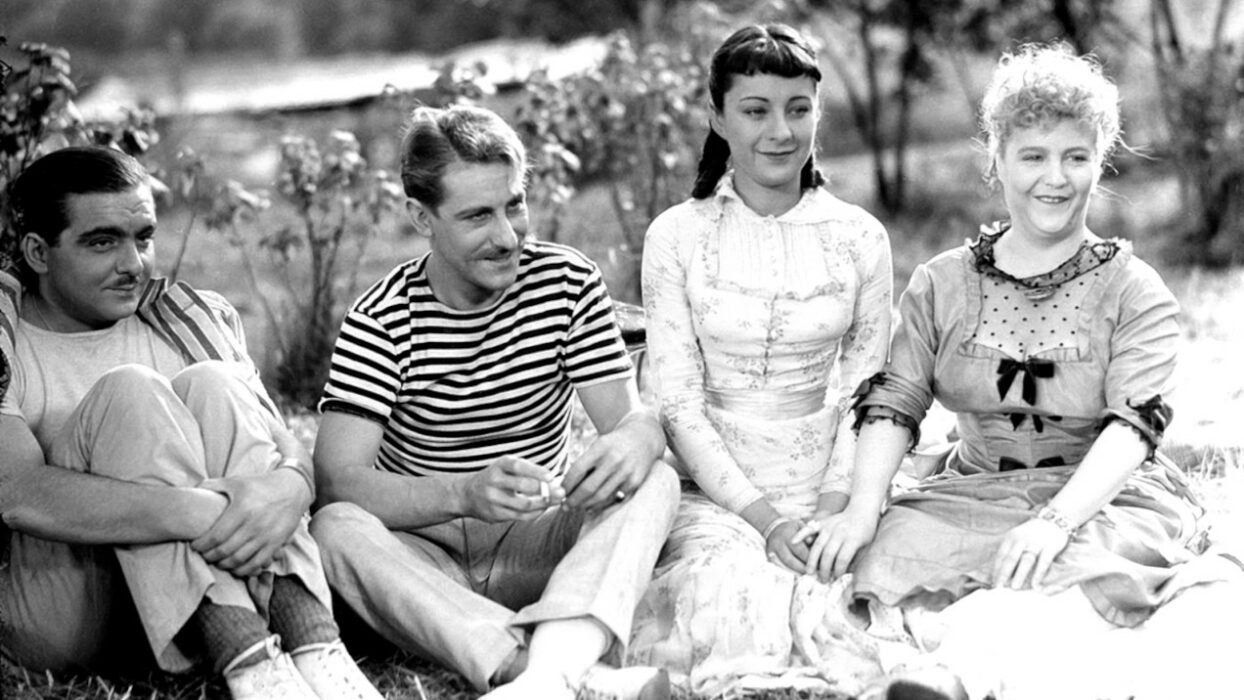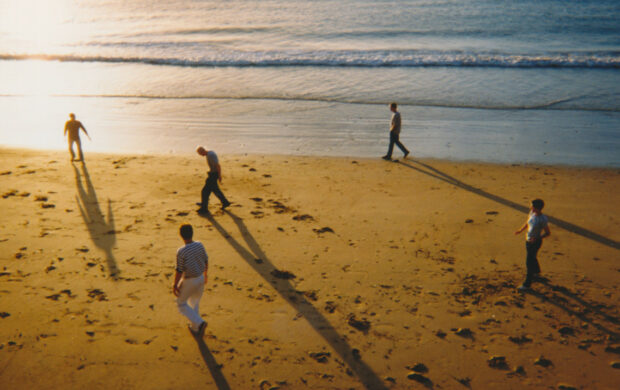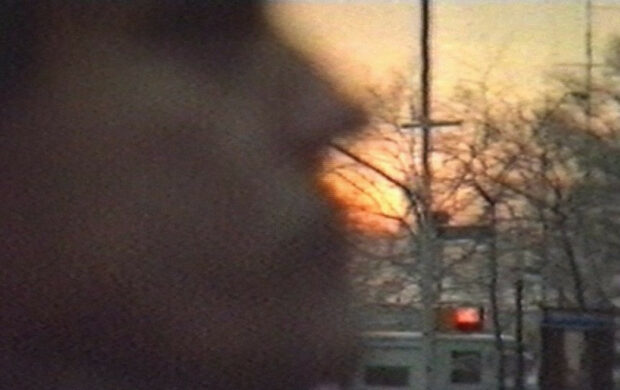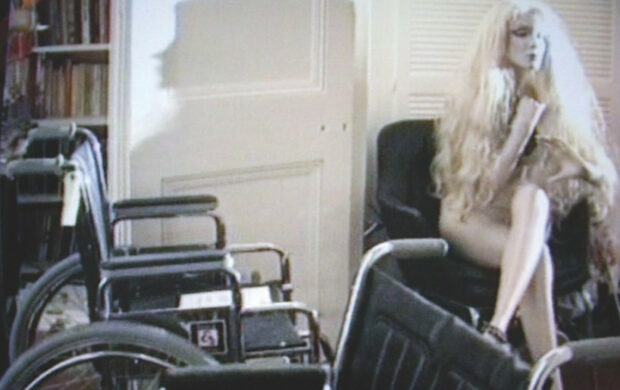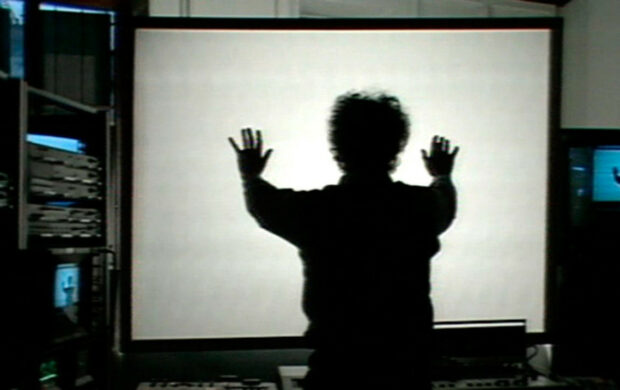Un tournage à la campagne
- 1994
- France
- 90 minutes
- French
A documentary by Alain Fleischer, at the initiative of the Cinémathèque française, is compiled from the out-takes of Jean Renoir’s film A Day in the Country. This editing gives us a greater understanding of the personalities of the film’s main actors, and the traits of the characters they play. This document gives us a wonderful insight into Jean Renoir, a master of directing actors.
With Un tournage à la campagne, we discover that the finished film starts with the arrival in the countryside and not with the journey from Paris, which begins Maupassant’s short story. The filmed shots that followed the author’s story were abandoned, some a little dull, the cart, the man on a velocipede, the children with wild animals… The genius of de Renoir is to construct shots in which the lines are never straight-on – a whole interplay of meandering or sinusoidal obliques that are never fixed – and to ensure that the frame is never complete, that it keeps a unfinished part, a capacity for sudden appearances, entrances, exits via the bottom edge of the frame, the background, from the right or left. Everything surprises us, even the neck of the bottle that appears in the foreground in a shot/ reverse shot. The frame does not serve to trap the world but to catch its surprises red-handed. It is Renoir’s “as if”, as if the camera were not there, as if there were no work – which is exactly what all his work involves. The actors find their freedom there, through the filming of a kind of vibration or, to use Renoir’s words, “the spirit of the times”, a feeling that he is the only filmmaker to have seized. Mindful of how actors are directed, he allows no errors. What matters to him is to achieve this false tone of theatrical contrivance that, when mixed with live dialogue recording, sounds like truth. While it is true that what is filmed is only an idea and more generally thought, Renoir bases his cinema on the Shakespearian formula. We are in the world as if on a stage, acting a role that is sometimes, but rarely, our own. Apparent improvisation, apparent spontaneity, apparent truth: such is life, where all truth is true at one moment and false at another.
Jean Douchet (catalogue Entrevues Belfort, 1996)
- Production : Les Films du Panthéon
- Photography : Jean Renoir
- Sound : Joseph de Bretagne
- Editing : Alain Fleischer
- Print contact : Forum des Images
